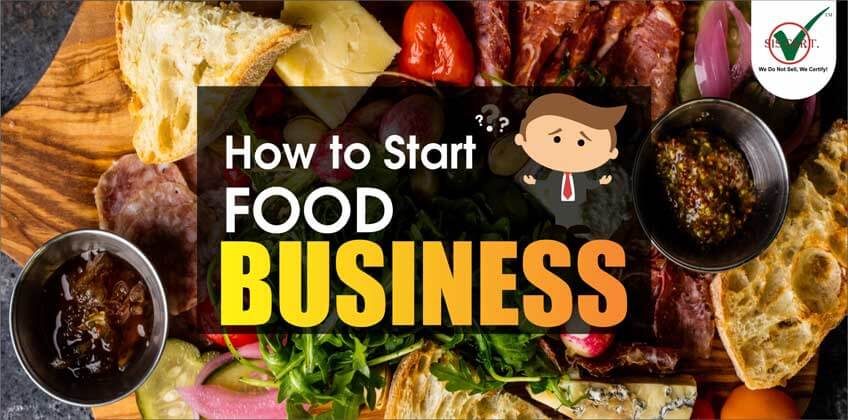Food is a fundamental need for people in all countries. Everybody loves to eat. This love is the main reason the food business has flourished worldwide. It is the need for nearly all living organisms, so there will always be a demand for it. For this reason, the Indian and international food industries will always be profitable.
Keeping all this in mind, many people are thinking that how to start food business India and other countries. However, before we do that, we must all understand this industry.
Many people find registration and licensing for the food business in India complicated. Therefore, we are offering you this guide. This guide provides a detailed description of starting a business in India.
Understanding the food business in india ⮯
Every enterprise that manufactures, imports, processes, packages, stores, distributes or sells edibles in India is a food industry. These industries offer the following services to the public:
- Catering and dining services.
- Bake house and café.
- Sweetshops and Truck for Food.
- Delivery services.
- Household occupation, etc.
Today, like all other businesses, this industry has also become online. This technology typically involves home delivery of grocery products, online delivery aggregators, online sellers, etc.
Food Market Opportunities in India⮯
There are several opportunities for this sector. India is a crucial exporter of spices and other horticultural products. India is the second-most populous country. This means an enormous market for the industry. Food is essential, and everyone in this vast population needs it. In 2018, this industry had a CAGR of 9 per cent. As a result, it is incredible how Indians changed their eating habits and routines, especially for millennia.
Quick-Service Restaurants (QSR) have become an essential component of our diet. Seeing how the market is stable is starting a profitable, low-cost business in India.
Quick-Service Restaurants (QSR) have become an essential component of our diet. Seeing how the market is stable is starting a profitable, low-cost business in India.
Requirements to set up a food business in India ⮯
Before starting the business, it is important to keep the following documentation readily available.
- FSSAI License
- Certification of shop establishment.
- Site map and development.
- Water Quality Review.
- GST certificate
- Fire Protection (NOC) Certificate.
- Certificate of Health NOC
Estimate all cost and market
One of the most important aspects of getting a business off the ground is cost analysis and other factors. Here are the costs you need to estimate before start food business in India
- Cost of raw material: Food is a combination of different raw materials. Therefore, it is necessary to complete the vendor to supply raw materials in advance to ensure a smooth supply of stock ingredients.
- Labour cost: Labour cost is the second largest cost added to the expenditures. Therefore, we need to find the best labour force that operates at affordable prices.
- Operating costs: This industry has several operating costs besides raw material and labor costs. For example, a delivery company may incur marketing costs.
- Costs of renting premises: If your plan to start food business in India, unsubscribe from a famous place in the city where occupancy is massive. Rental is also expensive. The rent of the premises is a fixed cost, which is a substantial amount that cannot be ignored in evaluating the global cost.
Registration and License
To start production in India, it is important to be aware of registration and licensing. Not getting the proper registration and license can seriously harm the profitability and credibility of your business.
In addition, the government can impose heavy penalties if the company does not operate under specific mandatory registrations and licenses. So let’s look at some of the most important and required steps to apply when starting a business in India.
Company Development
As we all know, it is essential to understand its legal structure before starting a business. There are different business training. For instance,
- Private Limited Company
- Public Limited Company
- One Person Corporation
- Partnership Firm
- Limited company.
- Sole Proprietorship
GST Enrollment & Tax Compliance
We all know there are a lot of mandatory tax rules within the organization. Currently, the taxation scheme is the GST (goods and services tax). To get a GSTIN number for the food industry, you must submit three following documents.
- PAN card/permanent account number.
- Professional tax license for the use of salaried employees. The tax is paid to all employees who earn 10,000 rupees or more within a month.
- No statement of objection from the owner or neighbors.
Therefore, any incorporated industry must get GST registration to keep the business running properly.
Trade Licensing
Issued by the relevant municipality. In addition, the licenses issued in most states are valid for one year, so you can quickly get them
ISO Certification
International Organization for Standardization (ISO) has established ISO 22000 Certification. It implements the best food safety management system that applies to every industry along the supply chain, from farm to fork.
If you want to turn the company into a long-term success, you can start with more ISO certifications. For example, ISO 9001 for QMS, ISO 14001 for EMS and ISO 45001 for OH&S.
FSSAI Registration
Refers to the Food Safety and Standards Authority of India. Whether for manufacturing, refining, packing, shipping or storage, it is mandatory to have an FSSAI registration if you work in this industry.
MSME Registration
Also known as Udyam Registration, it is available to start food business in India. If someone wants to benefit from the central or state government and the banking industry, this is the government system. Benefits include financial help, training and more.
Trademark Registration
Trademark registration offers legal protection and many other benefits, like maintaining a level of confidence that no one can erase.
Liquor License
If anyone wishes to offer alcohol on their premises, they must apply for a license. The Liquor License is issued by the local Excise Commissioner who wishes to serve any beverage containing alcohol
In short, starting up a food business in India is one of the most profitable ideas. However, that is a tough job. Therefore, the market must be entered after planning, guidance, registration, or licensing.



